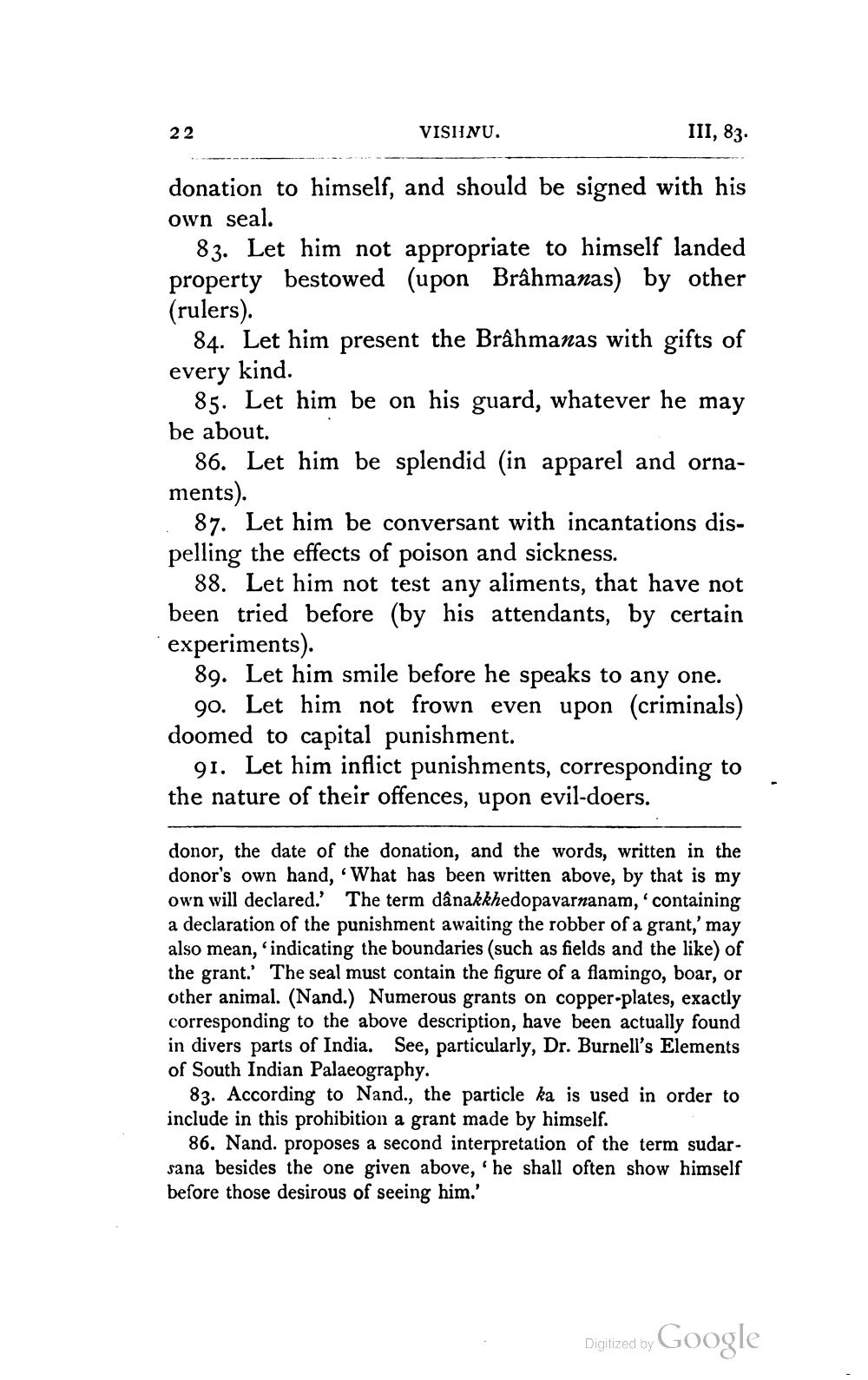________________
22
VISHNU.
III, 83.
donation to himself, and should be signed with his own seal.
83. Let him not appropriate to himself landed property bestowed (upon Brâhmanas) by other (rulers).
84. Let him present the Brâhmanas with gifts of every kind.
85. Let him be on his guard, whatever he may be about.
86. Let him be splendid (in apparel and ornaments).
87. Let him be conversant with incantations dispelling the effects of poison and sickness.
88. Let him not test any aliments, that have not been tried before (by his attendants, by certain experiments).
89. Let him smile before he speaks to any one.
90. Let him not frown even upon (criminals) doomed to capital punishment.
91. Let him inflict punishments, corresponding to the nature of their offences, upon evil-doers.
donor, the date of the donation, and the words, written in the donor's own hand, 'What has been written above, by that is my own will declared.' The term dânakkhedopavarnanam,"containing a declaration of the punishment awaiting the robber of a grant,' may also mean,'indicating the boundaries (such as fields and the like) of the grant.' The seal must contain the figure of a flamingo, boar, or other animal. (Nand.) Numerous grants on copper-plates, exactly corresponding to the above description, have been actually found in divers parts of India. See, particularly, Dr. Burnell's Elements of South Indian Palaeography.
83. According to Nand., the particle ka is used in order to include in this prohibition a grant made by himself.
86. Nand. proposes a second interpretation of the term sudarsana besides the one given above, he shall often show himself before those desirous of seeing him.'
Digitized by Google




